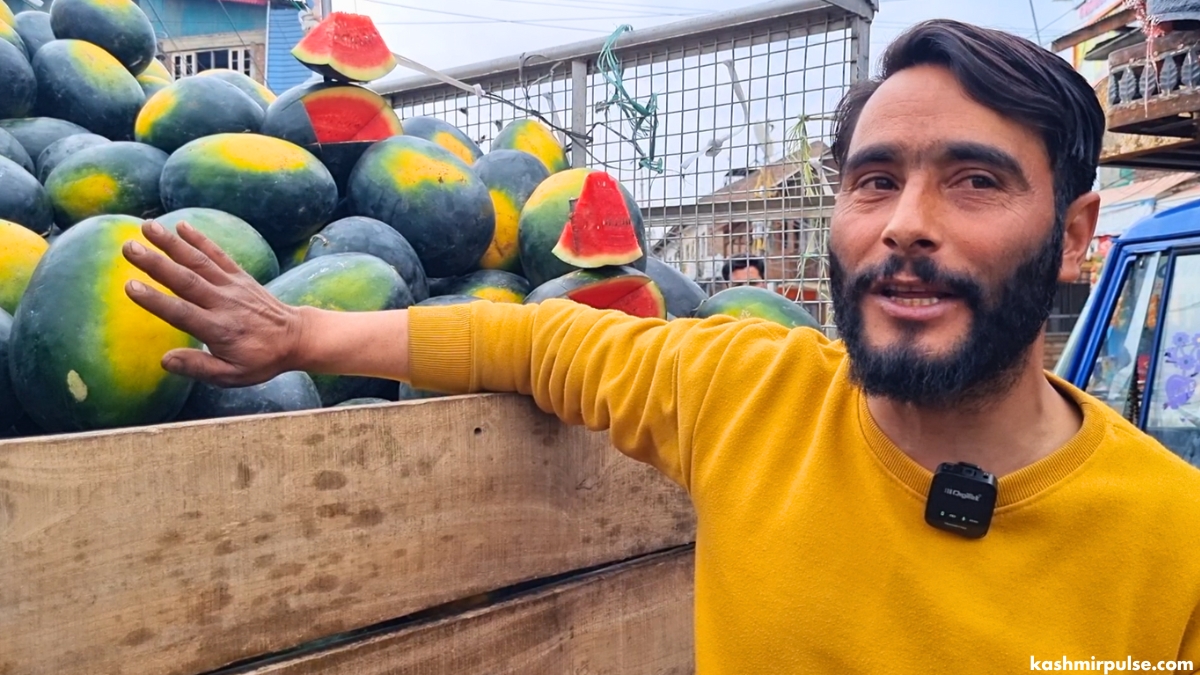
PULWAMA — A social media storm ignited by a tweet from Dr Wajahat (MD), warning against the consumption of artificially ripened watermelons during Ramadan, has led to widespread confusion and financial strain for watermelon vendors in Kashmir.
The controversy began when Dr Wajahat's tweet gained traction, urging consumers to boycott watermelons purportedly artificially ripened with chemicals. The tweet resonated with many netizens, sparking fear and scepticism among residents ahead of the Ramadan.
However, a subsequent investigation by The Kashmir Pulse news portal revealed conflicting perspectives. Speaking to local vendors and traders, they vehemently denied the existence of injected watermelons, dismissing Dr Wajahat's claims as misinformation.
"We have been selling watermelons for years, and there's no truth to these allegations. Our livelihoods are at stake because of baseless rumours spread on social media," expressed one vendor, echoing the sentiments of many in the community.
Seeking clarity, reporters from The Kashmir Pulse approached doctors at District Hospital Pulwama for expert opinion. However, they declined to comment, citing a lack of scientific evidence to support the notion of artificially ripened watermelons.
In response to mounting concerns, the J&K Food and Drugs Department stepped in, collecting samples of watermelons for testing to ascertain the veracity of the claims. The results of these tests are awaited and are anticipated to shed light on the ongoing controversy.
Amidst the uncertainty, vendors expressed frustration over the financial impact of the controversy. "Our sales have plummeted since these allegations surfaced. We urge the public to rely on real-life facts rather than succumbing to the influence of social media warriors," pleaded another vendor.
The polarizing nature of the issue has left consumers torn between caution and scepticism, highlighting the power and pitfalls of social media discourse in shaping public opinion.
As the investigation unfolds, residents of Kashmir remain vigilant, awaiting conclusive evidence to put to rest the swirling rumours surrounding the safety of watermelon consumption during Ramadan.
This post first appeared on
The Kashmir Pulse

